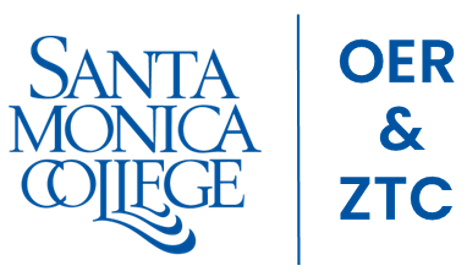Lesson 10: Freedom of Speech on the Web and Limits to Free Speech on the Web
Introduction
Freedom of speech refers to the ability of a person to publicly speak or publish any thought without legal constraints or repercussions.
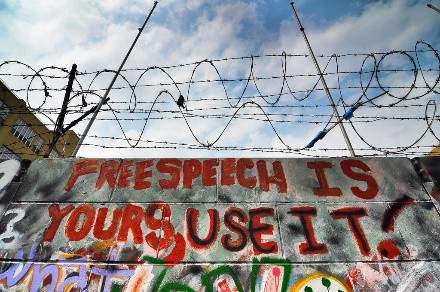
by Dominic Bartolini is licensed under CC BY 2.0
Free speech is a fundamental right in democratic societies. The First Amendment to the U.S. Constitution guarantees citizens the right to free speech. The Internet and the web have allowed people to communicate their views to a greater extent and with a broader reach than has ever before been possible, and many are taking full advantage of this freedom. Freedom of speech provides many benefits; however, some people use free speech in a dangerous and hateful fashion, placing individuals, groups, businesses, organizations, governments, countries, and perhaps even the entire human race at risk. When, if ever, does free speech go too far?
Most of us know that employers check social networks as part of their background checks for prospective employees. In 2012, some U.S. government agencies and companies started asking for Facebook usernames and passwords as part of the job interview process so they could check the applicants’ private profiles. With a tough job market, many interviewees felt obliged to go along with the request.
When newspapers reported this new hiring practice, Facebook threatened to sue the companies involved for violating member privacy. The American Civil Liberties Union (ACLU) joined the fight as well, calling the practice an invasion of privacy. Senators Richard Blumenthal and Charles Schumer called for a federal investigation into the new hiring practice. With unemployment at 8% in the U.S., Blumenthal and Schumer said that such requests amount to a form of coercion “that could set a dangerous precedent.” “In an age where more and more of our personal information—and our private social interactions—are online, it is vital that all individuals be allowed to determine for themselves what personal information they want to make public,” Schumer said. “This is especially important during the job-seeking process when all the power is on one side of the fence.”
How do you think employers benefit from reviewing prospective employee’s Facebook profiles and activity? Why might some prospective employees feel that this practice inhibits their freedom of speech and invades their privacy, even when they don’t have anything to hide? Should an employer gauge the potential value of a prospective employee based on Facebook posts? Should a company have the right to fire an employee because of Facebook posts?
There are websites, blogs, YouTube videos, and social media groups to cover every conceivable topic and point of view. The Internet is used to espouse the views and beliefs of every religious and political group. The Internet has become a tool for organizing citizens around issues of injustice. In some cases, governments have cut off access to the Internet in order to gain control over a population.
Governments, including the U.S., are considering the creation of an Internet “kill-switch”—a single shut-off mechanism for all Internet traffic—to use in situations of social unrest or cyberattack. The idea has strong opposition from civil rights groups that consider such an action an inhibition of free speech and civil liberties.
The web has become a platform for anyone and everyone with access to publish information and misinformation. Websites may include points of view that many find offensive and even dangerous, such as those that support or promote suicide, racism, hate, or terrorism. This section examines the social implications of freedom of speech on the Internet and how varying societies deal with controlling what is expressed online.
Lesson 10.1: Freedom of Speech on the Web
Lesson 10.1 Introduction
The Internet has the potential to be the greatest force for justice, equality, and democracy the world has ever known. It can allow everyone on Earth an opportunity to speak their mind, to raise support for causes they believe in, or to expose injustice wherever it may occur. Every day, new tools are made available, written or built, that provide new ways to interact with billions of people and to be heard, but these new tools must be used and protected if they are to endure.
Reading: Web Empowerment
Web empowerment refers to the power that the web provides for individuals to express themselves, influence others, and affect the course of society.
Why This Matters
Perhaps the largest impact of the web on all cultures is providing ordinary people with the ability to publish their views to the world. Before the web, only large companies, mass media, and governments were able to broadcast messages to the world. The web provides this ability to anyone who can access an Internet-connected computer. People are taking advantage of that power to express dissatisfaction and offer constructive—and sometimes destructive—criticism to those in positions of power. Because of this, businesses and governments are more interested in pleasing their customers and citizens than ever before.
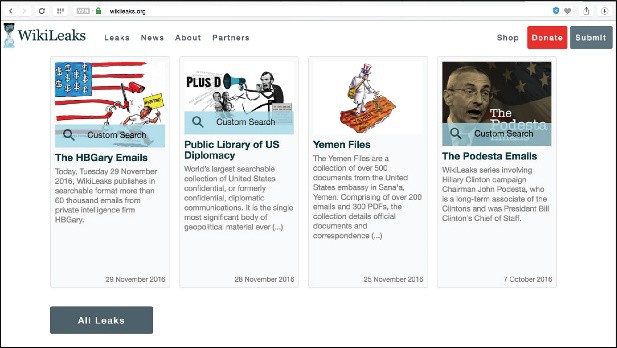
Source: WikiLeaks Attribution: Fair Use
Essential Information
The Internet has been grasped as a tool to empower those who traditionally have been without a public voice. At websites such as Yelp.com, customers are able to provide opinions about a businesses’ service and products. Epinions.com provides consumer reviews about most products, which empowers customers to make wise purchasing decisions. There is no longer reason for consumers to be taken by surprise by the quality of products purchased.
Bloggers have been an important component of online public opinion and journalism. A blog, short for weblog, is a website created to express one (or more) individual’s views on a given topic. Beyond consumer reviews, blogs extend to cover social editorials and even news journalism. News-reporting bloggers are sometimes referred to as citizen journalists. Mainstream media—the traditional news organizations—originally discredited citizen journalists as amateurs without credentials who operate without proper journalistic mechanisms, such as reliable sources and proper quality control and editing. Others consider citizen journalism a healthy democratic counterbalance to mainstream media, forcing more transparency and honesty in news reporting. Many mainstream media companies support citizen journalism by providing a portion of their websites for news items submitted by citizen journalists. Also, many mainstream journalists now have blogs of their own.
The proliferation of smartphones and the ability to easily transfer digital photos and videos have led to many amateur photographers having their photos and videos published. More amateur photos are gracing the front pages of newspapers and television newscasts because a member of the public with a phone was at the scene of a breaking story before the press. Sometimes, those photos are used in police investigations. The FBI relied on photos submitted by pedestrians to catch the Boston Marathon bombers in 2013.
Just as the Internet and the web have allowed people to stand up to businesses and news media, they have given citizens the power to be heard by the government. Blogs published secretly by citizens living under repressive governments have been instrumental in bringing international attention to their plights and influencing change.
Perhaps the best example of web empowerment is WikiLeaks. WikiLeaks is a website that publishes confidential documents leaked by employees and others in order to create more transparent business and government practices. In 2010, WikiLeaks released hundreds of thousands of leaked confidential government documents to the public. The United States government launched a criminal investigation into WikiLeaks and asked allied nations for assistance. WikiLeaks founder Julian Assange fled the country seeking a safe haven. In November 2010, a request was made for Assange’s extradition to Sweden, where he had been questioned months earlier over allegations of sexual assault and rape. Assange surrendered himself to UK police on December 7, 2010 and is currently on bail in the Embassy of Ecuador in London, unable to leave without being arrested for breaching his bail conditions.
Julian Assange inspired many dedicated followers who worked to keep WikiLeaks in business. Others believe WikiLeaks has compromised U.S. national security and endangered sensitive international relations.
Reading: Net Neutrality
Net neutrality refers to a principle applied to high-speed Internet services, whereby all data is delivered to all users with equal priority.
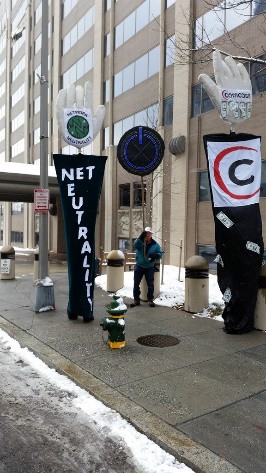
“NetNeutrality-VS-Comcast” by Backbone Campaign is licensed under CC BY 2.0
Why This Matters
The Internet was designed to be a free and unfettered communication medium. The big telecom companies that control access to the Internet have been known to filter Internet traffic, giving certain traffic precedence. Many scholars, tech professionals, and other members of the public think the Internet should stay free—free as in net neutrality. However, telecom companies complain that their networks cannot support the amount of network traffic generated by the Internet and that bandwidth hogs must be regulated through technologies like traffic shaping. Some feel that it’s up to the federal government to decide who is right.
Essential Information
Network neutrality has been a hot topic for many years. Content and application providers, such as Yahoo!, Google, and Vonage, have engaged in legal battles with network providers, such as Comcast and AT&T, over whether the network providers have the right to charge content providers for certain services. The content and application providers are concerned that network providers are planning to prioritize what is sent over their networks, giving preference to some Internet services over others.
Content providers fear that network providers will start managing the flow of information, changing the current free-flowing, “neutral” status of the Internet. They want the U.S. government to impose restrictions on the network providers to keep the flow of information unrestricted.
Comcast has been investigated by the FCC for limiting, or throttling, certain types of Internet traffic. The investigation was launched after users complained that video uploads over Comcast’s network slowed to a crawl or a standstill. After weeks of FCC hearings, Comcast admitted to limiting certain types of P2P traffic in its efforts to ensure a reliable Internet experience for its customers.
The FCC ordered Comcast to stop throttling BitTorrent video traffic. Comcast complied by implementing a protocol-independent approach to filtering that throttles any user that is hogging the network bandwidth. Later, however, a grand jury determined that the FCC does not have jurisdiction over Internet service providers.
President Obama then called on the FCC to develop “the strongest possible rules to protect net neutrality.” To that end, the President recommended that the agency reclassify ISPs so that they’re regulated more like public utilities. Echoing calls from consumer advocates, Obama also asked the FCC to explicitly ban “paid prioritization.” “Simply put: No service should be stuck in a ‘slow lane’ because it does not pay a fee,” Obama said. “That kind of gatekeeping would undermine the level playing field essential to the Internet’s growth.” The FCC successfully implemented such policies in 2016. However, President Trump and the Republican majority in the House and Senate promise to repeal those rules, allowing ISPs to regulate the Internet as they please.
The battle over network neutrality has been raging for years and will most likely continue for years to come. Roughly equal numbers of individuals, groups, and corporations are on either side of the issue. Generally, Republicans and ISPs oppose government oversight to provide network neutrality, while Democrats and content providers support it.
Lesson 10.2: Limits to Free Speech on the Web
Lesson 10.2 Introduction
With the unprecedented opportunities and power of expression created by the Internet and the web comes equally significant responsibilities and potential for abuse and harm. With billions of people creating content and disseminating ideas at the same time, it is nearly impossible to know which voices are correct and which are dangerous. Governments have a responsibility to protect their citizens from danger whenever possible. Is it possible to balance the need for security against the right of free speech?
Reading: Internet Censorship
Internet censorship refers to the control of speech and other forms of expression over the Internet and web by a government or authority.
Why This Matters
Censorship may serve a useful purpose when it protects people from serious harm—but who decides what is harmful? What, if anything, should be censored? Pornography and indecent images and language? Instructions on how to make a bomb? Terrorist recruitment websites? Neo-Nazi hate messages? Anti-government sentiments and ideas? Who should decide what is censored? Finding the right balance between freedom of speech and censorship can mean the difference between a free democracy and totalitarian rule.
Essential Information
Although the First Amendment to the U.S. Constitution protects freedom of speech in the United States, there are some restrictions. Libel is the deliberate act of defamation of character by making false statements of fact. Libel and direct, specific threats are not protected under the First Amendment.
Consider the 15-year-old student who was fined $4,200 for posting an embarrassing video of his schoolteacher on YouTube. Each year, hundreds of similar lawsuits are brought against individuals who post damaging untruths about individuals or companies on the web.
Laws regarding speech vary from country to country. Various forms of censorship exist around the world. Free speech and the Internet are most threatening to repressive governments whose citizens lack political and social freedom.
The Chinese government blocks its citizens from many overseas sites and arrests citizens who post obscene or subversive content on the web. Chinese law enforcement officers monitor computer users through a physical presence and through electronic surveillance. Internet cafés in China, where most citizens access the Internet, are equipped with video camera surveillance. Chinese websites like the one shown in the figure may have anime “police officers” to remind people to watch what they read and say online.
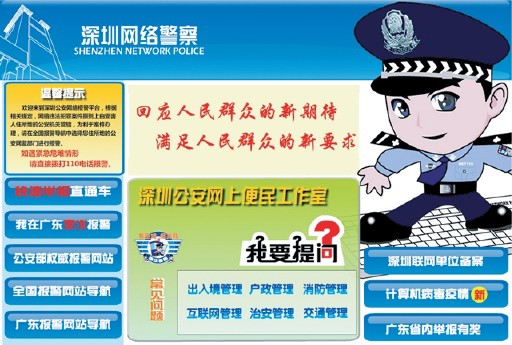
Source: Internet Surveillance Division of the Public Security Bureau in Shenzhen, People’s Republic of China Attribution: Fair Use
In 2010, Google, incensed by Chinese hackers, gave the Chinese government an ultimatum: allow Google to provide uncensored search results, or Google would pull out. After months of negotiations, Google ultimately closed its Chinese search engine—a bold move in the country with the world’s largest and fastest-growing economy. But, China isn’t the only one censoring search results. Google has posted an online tool that allows users to see which governments request Google to remove content from search results and YouTube. Among the countries listed are Brazil, Germany, India, and the United States.
If you were under the impression that there is no censorship in the United States and other free democracies, think again. Some information is censored because it is deemed to be dangerous to the public. For example, it is illegal in the United States to make certain encryption technologies available to certain foreign governments. This is in an effort to keep potentially dangerous foreign governments from using U.S. technologies to decrypt national secrets. After the shootings at Columbine High School in Littleton, Colorado in 1999, the U.S. Congress passed a law mandating 20 years in prison for anyone distributing bomb-making information with the intent to cause violence. Because explosives have numerous industrial uses, many websites continue to contain bomb-making instructions. However, the Internet is not the only method for obtaining such information. Encyclopedia Britannica includes bomb-making instructions, as does a booklet published by the U.S. Department of Agriculture. The same types of explosives used by farmers to remove tree stumps were used in the Oklahoma City bombing, in which 168 people lost their lives. This illustrates the difficulty of censoring information that is valuable for both legal and illegal purposes.
Censorship is a hot topic in the scientific research community as an increasing number of scientific publications are being censored on the grounds that they are a threat to national security. The National Academy of Sciences suspended the publication of an article in its journal that described the risk of terrorists poisoning the nation’s milk supply using botulinum toxin. The U.S. Department of Health and Human Services considered the information in the article useful to terrorists and prevented it from being published.
Increasingly, private web content companies are taking it upon themselves to censor materials posted through their services. You will notice that YouTube, Facebook, Flickr, and other sites try to avoid videos and photos that might be construed as dangerous or indecent. These businesses have the right to censor content on their sites because their users have signed a terms of use agreement. Apple has purged its App Store of thousands of apps that might be construed by any of its users as indecent.
These examples illustrate the difficulty of censoring public speech. Censorship typically includes an infringement on an individual’s rights in exchange for a perceived greater public good because definitions of concepts such as dangerous information and decency differ, any government that attempts to define these terms for its citizenry risks alienating a percentage of the population.
Censorship often contradicts the basic tenets of societies that value freedom and individual rights.
Reading: Internet Decency
Internet decency refers to efforts by governments and others to rid the Internet and web of content that they consider indecent or to filter indecent content from some users.
Why This Matters
Most countries support the Internet’s ability to empower its citizens but struggle with issues regarding the perceived negative aspects of Internet access. One major concern is keeping indecent content from minors. Because the Internet does not have a rating system like motion pictures and television, theoretically, anyone who can connect to the Internet can view any content there. With increasing numbers of very young children making the Internet a part of their daily lives, it is natural for parents and others to wish to protect them from viewing content that is inappropriate and harmful.
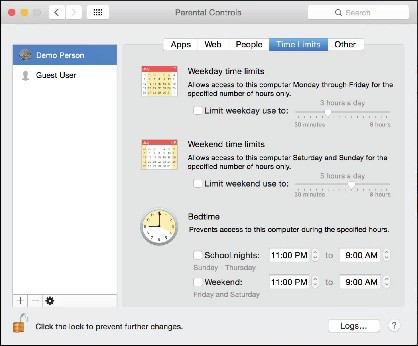
Source: Apple Inc. Attribution: Fair Use
Essential Information
Several governments have made efforts to protect their citizens from indecent web content. Australia has a commonwealth law that holds Internet service providers and Internet content hosts responsible for deleting content deemed “objectionable” or “unsuitable for minors” from their servers per a take-down notice from the government regulator, the Australian Communications and Media Authority. Some Australians feel that the law has failed to reduce the availability of pornography, as it is still readily available in other countries.
The U.S. government has made similar attempts to eliminate indecent content from the web with its 1995 Communications Decency Act. Less than a year after being passed, the law was repealed due to the government’s inability to define terms such as “indecent,” “obscene,” and “lewd,” on which the law was based. One person’s obscene content may be another person’s work of art. During its brief enactment, the law had a serious impact on legitimate and useful websites that may have been considered indecent by terms of the law. Family planning websites, medical websites, and art and literature websites pulled their content for fear of prosecution. For example, it was difficult to find information regarding breast cancer on the web while the law was in effect.
The challenge of censorship is keeping certain content (such as pornography) from a subset of the population (such as minors) without encroaching upon the freedom of adults. One solution is content-filtering software. Content-filtering software like Net Nanny works with the web browser to check each website for indecent materials (defined by the installer of the software) and allows only “decent” webpages to be displayed. Windows and Mac OS offer similar parental controls to limit particular users’ time online and their access to websites and apps. Newer versions of iOS and Android offer parents the ability to restrict access to certain apps unless a passcode is entered. This is useful for parents who allow their children to play games on their phones or tablets.
Content-filtering software is ideal for situations where one person is responsible for setting the rules and defining what is allowable. For example, at home, parents may use filtering to block out what they consider inappropriate for their children. In the workplace, management may use such software to filter out non-business-related websites. Such software becomes problematic in larger democratic situations where definitions of decency may vary. For example, the 2000 Children’s Internet Protection Act requires schools and libraries that receive federal funding for technology to implement content filtering. The law created a stir in the public library system when it was discovered that filters block access to many valuable nonpornographic websites. Libraries bound by their own Library Bill of Rights, which opposes restrictions based on age, were forced to find creative strategies to meet the letter of the law while providing the maximum amount of access to adults.
Child pornography goes beyond being indecent and is unlawful in most countries. Many criminals have gone to jail for producing, publishing, and viewing child pornography. British Telecommunications (BT) has applied content-filtering software to the entire British Internet infrastructure to block access to child pornography websites.
